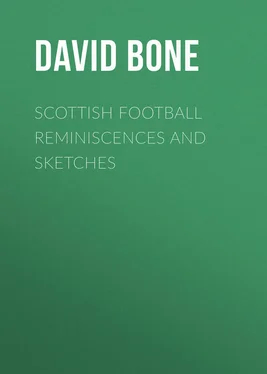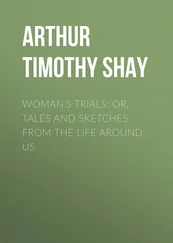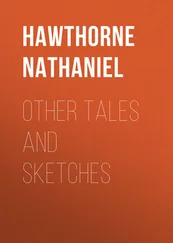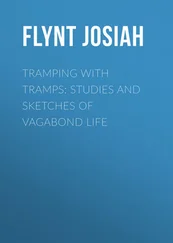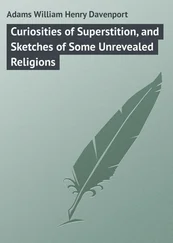David Bone - Scottish Football Reminiscences and Sketches
Здесь есть возможность читать онлайн «David Bone - Scottish Football Reminiscences and Sketches» — ознакомительный отрывок электронной книги совершенно бесплатно, а после прочтения отрывка купить полную версию. В некоторых случаях можно слушать аудио, скачать через торрент в формате fb2 и присутствует краткое содержание. Жанр: foreign_antique, foreign_prose, на английском языке. Описание произведения, (предисловие) а так же отзывы посетителей доступны на портале библиотеки ЛибКат.
- Название:Scottish Football Reminiscences and Sketches
- Автор:
- Жанр:
- Год:неизвестен
- ISBN:нет данных
- Рейтинг книги:4 / 5. Голосов: 1
-
Избранное:Добавить в избранное
- Отзывы:
-
Ваша оценка:
- 80
- 1
- 2
- 3
- 4
- 5
Scottish Football Reminiscences and Sketches: краткое содержание, описание и аннотация
Предлагаем к чтению аннотацию, описание, краткое содержание или предисловие (зависит от того, что написал сам автор книги «Scottish Football Reminiscences and Sketches»). Если вы не нашли необходимую информацию о книге — напишите в комментариях, мы постараемся отыскать её.
Scottish Football Reminiscences and Sketches — читать онлайн ознакомительный отрывок
Ниже представлен текст книги, разбитый по страницам. Система сохранения места последней прочитанной страницы, позволяет с удобством читать онлайн бесплатно книгу «Scottish Football Reminiscences and Sketches», без необходимости каждый раз заново искать на чём Вы остановились. Поставьте закладку, и сможете в любой момент перейти на страницу, на которой закончили чтение.
Интервал:
Закладка:
Scottish Football Reminiscences and Sketches
PREFACE
In bringing my first edition of Football Reminiscences and Sketches before the public, I do so with a sense of profound regard for the game and its players, and heartfelt gratitude to numerous friends – some of whom, alas! are no more – for advice and assistance. If my readers consider it worthy of one who has devoted a quarter of a century in attaining that experience necessary to criticise the players of the dead past and those of the living present with fidelity, I will have gained something to be remembered, and be amply repaid for what I have done to assist the spread of the Association game in Scotland. Many of my sketches, under different names, have already appeared in various journals, including the Daily and Weekly Mail , Bell's Life in London , and the "Scottish Football Annual," but I have remodelled some of them very considerably, and indulge in the hope that they may while away an hour or so at the fireside of the Player and Spectator after a big Cup Tie or other interesting match.
The Author.I. – FOOTBALL: ANCIENT AND MODERN
"Then strip, lads and to it, though cold be the weather,
And if, by mischance you should happen to fall,
There are worse things in life than a tumble on heather,
For life is itself but a game at Football."
In Scotland, so closely associated with traditional lore, and the acknowledged birth-place of romance and patriotic song, it would be almost dangerous to incur displeasure by attempting to refer to the early history of anything associated with the amusements or recreations of the people, without actually touching on tradition – a point held by some in far greater regard and reverence than actual fact. Under these circumstances, then, I do not want to run the risk of complete annihilation by ignoring the traditional, and even territorial, aspect of Football. That the game was played as early as the tenth century there is any amount of authentic evidence to show, and that it continued to be one of the chief recreations of the people there can be no doubt. Coming much further down, however, the game of Football is referred to, both by historical and romance writers. In Sir Walter Scott's "Lay of the Last Minstrel," we find that the English and Scotch soldiers, in a few hours' actual cessation from skirmishing on the eve of a battle, engaged in "the merry Football play." Our forefathers, however, must have played the game in rather a rude and undignified fashion, if we can believe certain authorities – actual brute force and superiority in point of weight being the indispensable concomitants of a successful side. The matches, too, must have been played utterly regardless of science. Just fancy a couple of crack teams meeting on a heather-covered field, with the "hailing spots" about a mile and a-half apart, and playing a match lasting four or five hours! Could any of our young men nowadays stand such rough-and-tumble work? Happily it is not required. It has been found that a match lasting an hour and a-half, with the ball ever and anon passing in front of one on a level field, is quite enough, even for the strongest back, half-back, or forward. Experience has sufficiently proved that, even in this age of scientific play. So much for the past, and I will proceed to touch briefly on the spread and popularity of football.
To those who only know football as promoted by the Queen's Park, and subsequently by the Vale of Leven, Clydesdale, Granville (now defunct), 3rd L.R.V, and lastly, though not leastly, by the Scottish Football Association, we are almost compelled to offer some information. A quarter of a century ago a Union was formed in Edinburgh to draw up a code of rules to encourage the game of Football, and matches were played between schools and other clubs. These rules were a combination of the present Association and Rugby, dribbling being largely indulged in, but the goal-posts were similar to those now in use under the latter code of rules, and a goal could not be scored unless the ball went over the posts. This game made considerable progress in Edinburgh, being vigorously promoted by scholastic clubs and students attending college. Some years later, when the number of young gentlemen sent over from England to be educated in Scotland, particularly Edinburgh, began to increase, these old rules were subjected to considerable alteration, and eventually assimilated to those of the English Rugby Union, and all the known clubs in Scotland at that time adhered tenaciously to these rules, and under them many exciting games were played between Eastern and Western clubs, the Glasgow Academicals and Edinburgh Academicals being the leading ones. Eventually, however, the new clubs springing into existence in the Western District of the country did not care to play these rules, and, following the example of similar clubs in England, adhered to what they considered an improvement on the old system of Football, and joined the English Football Association, formed in 1863. The first to do this was the Queen's Park, the mother of Association Football in Scotland, in 1867, and the example was soon followed by the Clydesdale, 3rd L.R.V., Vale of Leven, Granville, and others, a few years afterwards. Well can I remember witnessing several exciting tussles on the Queen's Park recreation ground (then the only meeting-place of the Premier Association Club), between the Vale of Leven, Hamilton, East Kilbride, Clydesdale, Granville, and 3rd L.R.V. Since then the spread and popularity of the Association style of play has been so often written about that it is, so to speak, bound up in the actual history of the Western District of Scotland. In Edinburgh, however, the new rules have not made so much headway, the Rugby code being there as extensively played as of yore. Some advances, however, have taken place, and the Edinburgh University has an Association team, and that city several promising clubs, including the Hibernian, Heart of Midlothian, and St. Bernard, and, in Leith, the Athletic, that made such a plucky fight with the Queen's Park in a recent cup tie.
No one, except a close observer, can believe the earnestness and enthusiasm imparted into the game by the formation of young clubs, but there is one danger which should be avoided. There is such a thing as overdoing; and, depend upon it, if this is continued, the game will suffer. To those who love and appreciate everything in season, the advice I am about to impart will be doubly significant. Football is a winter game, and while it may be all right to practice in spring and autumn, the line is bound to be drawn somewhere, and why attempt to force it down the throats of cricketers, athletes, yachtsmen, and even lawn-tennis players, in the heart of summer? It must not be forgotten that some of our best and most influential football clubs have also cricket clubs and kindred summer recreations attached, and, in the interests of football, these should be encouraged; and to this end I am confident my remarks will be treated with some respect. I am also sure that no one who has taken a deep interest in the game from its comparative infancy, but can look back with extreme pleasure on its development, and even go the length of registering a vow that he will do his utmost to make and uphold it as an honest and manly game, despite isolated assumptions by a few traducers who question such earnestness, and I will endeavour to point them out, and draw comparisons.
"What came ye out to see?" might often be asked by an uninterested spectator who had ventured forth to look at some of the matches. A crowd of young men pursuing a round object, called a ball, with great earnestness of purpose. To the young cad, who can think of nothing but the colour of his latest pair of kid gloves, or the check of his newest acquisition in the shape of fashionable trousers, all out-door amusement is considered an interminable bore, the game of Football has, of course, no charm.
Читать дальшеИнтервал:
Закладка:
Похожие книги на «Scottish Football Reminiscences and Sketches»
Представляем Вашему вниманию похожие книги на «Scottish Football Reminiscences and Sketches» списком для выбора. Мы отобрали схожую по названию и смыслу литературу в надежде предоставить читателям больше вариантов отыскать новые, интересные, ещё непрочитанные произведения.
Обсуждение, отзывы о книге «Scottish Football Reminiscences and Sketches» и просто собственные мнения читателей. Оставьте ваши комментарии, напишите, что Вы думаете о произведении, его смысле или главных героях. Укажите что конкретно понравилось, а что нет, и почему Вы так считаете.
